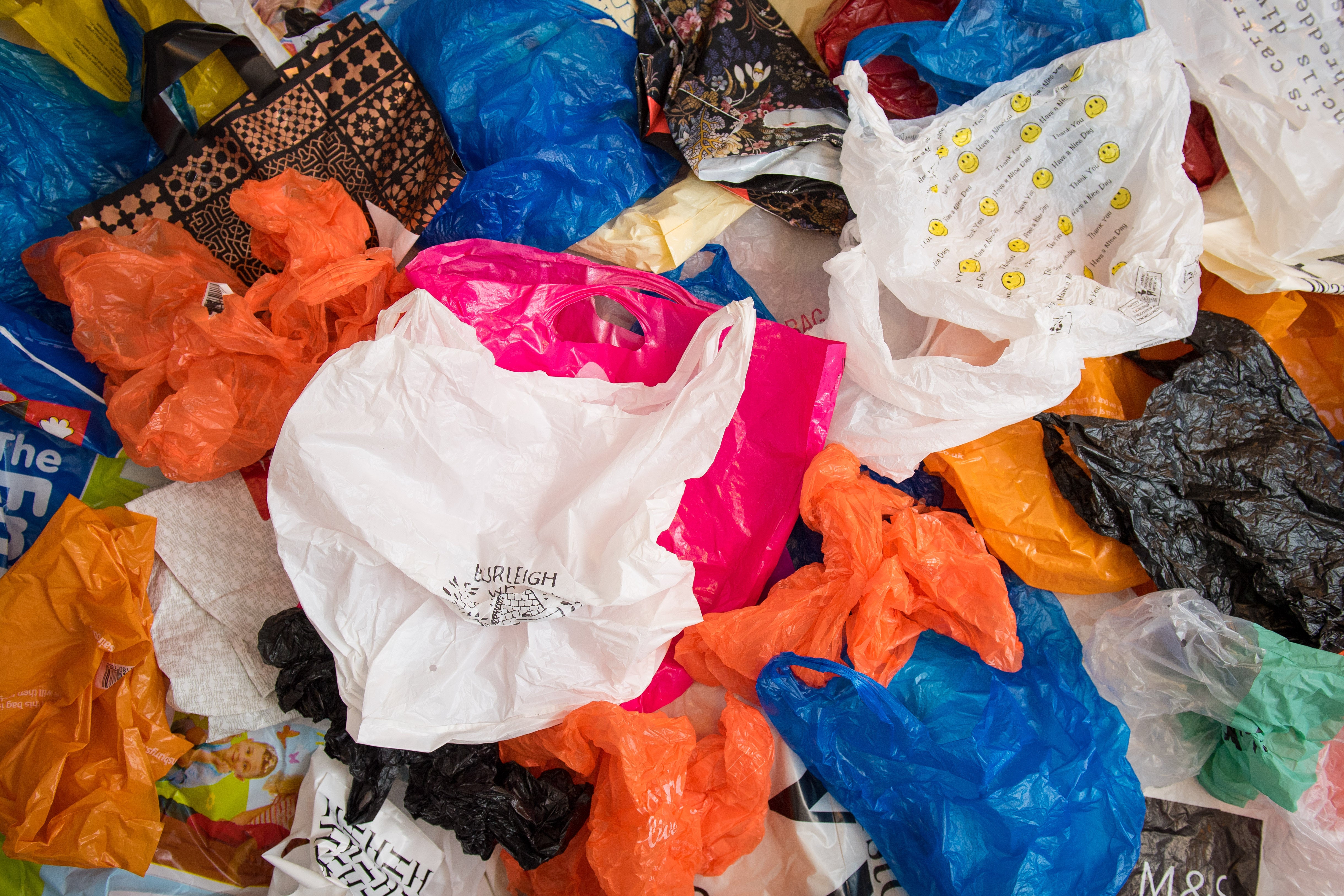Saving pennies not planet behind decline in plastic bag use – study
Research by Nottingham University Business School’s N/LAB analytics centre was based on 10,000 consumers’ questionnaire responses.

Your support helps us to tell the story
From reproductive rights to climate change to Big Tech, The Independent is on the ground when the story is developing. Whether it's investigating the financials of Elon Musk's pro-Trump PAC or producing our latest documentary, 'The A Word', which shines a light on the American women fighting for reproductive rights, we know how important it is to parse out the facts from the messaging.
At such a critical moment in US history, we need reporters on the ground. Your donation allows us to keep sending journalists to speak to both sides of the story.
The Independent is trusted by Americans across the entire political spectrum. And unlike many other quality news outlets, we choose not to lock Americans out of our reporting and analysis with paywalls. We believe quality journalism should be available to everyone, paid for by those who can afford it.
Your support makes all the difference.Shoppers shun single-use plastic bags to save pennies rather than the planet, a “big data” study of more than 10,000 consumers has found.
The research by Nottingham University Business School’s N/LAB analytics centre of excellence suggests the massive decline in plastic bag use in the UK may have little to do with shoppers worrying about the environment.
The study drew on over a million loyalty card transactions to explore the psychological and demographic predictors of single-use bag purchases.
Previous research has tended to focus exclusively on consumers’ personalities or motivations not, crucially, on whether an individual’s beliefs actually translate into action in the real world
Researchers found bags are most likely to be bought by younger shoppers who are often male and less frugal but whose environmental concerns do not affect their decisions to buy or not.
The findings emerged as plastic bag consumption builds to its annual peak during the festive period, despite all retailers in England being legally required to charge 10p per bag.
Study co-author Dr James Goulding, N/LAB’s associate director, said: “Until now very little was known about the people who still regularly buy plastic bags – or those who don’t.
“Previous research has tended to focus exclusively on consumers’ personalities or motivations not, crucially, on whether an individual’s beliefs actually translate into action in the real world.
“Our approach recognises that people today leave in their wake a substantial amount of data that can help do social good and shed significant light on how they really behave in practice.”
Identified from the original dataset of 1,284,825 transactions at 1,222 stores, more than 10,000 consumers participated in a questionnaire exploring their circumstances, traits and environmental opinions.
Their survey responses were linked to their purchasing data, and a machine-learning algorithm was then used to determine the factors that actually predicted bag-buying behaviour.
The survey included questions about views on environmental considerations in general and climate change in particular, but these were found to have little influence on purchasing decisions.
We expected our findings would show infrequent bag-buyers are at least partly motivated by a desire to save money. But what we didn’t expect ... was that environmental concerns wouldn’t predict consumption at all
Dr Gavin Smith, an associate professor in analytics, said: “We expected our findings would show infrequent bag-buyers are at least partly motivated by a desire to save money.
“But what we didn’t expect, not least given environmentalism’s role in underpinning the levy on plastic bags, was that environmental concerns wouldn’t predict consumption at all.
“This suggests future campaigns to further reduce plastic bag consumption might benefit from different messaging. It’s a matter of understanding whom to target, how and when.”
Amid growing concerns over the contribution plastic bags make to pollution and litter, Wales introduced the UK’s first levy in 2011, with Northern Ireland following in 2013 and Scotland in 2014.
In 2015, the year after its seven biggest supermarkets gave away more than 7.6 billion single-use bags, England introduced its own 5p levy, which doubled to a minimum of 10p in May this year and was extended to all retailers.
In 2014 around 140 bags per person were given away, equating to approximately 61,000 tonnes in total.
The supply of single-use bags, which take longer than other bags to degrade in the environment and can damage wildlife, had increased for five years running prior to 2014.
A mandatory charge – with retailers expected to give the proceeds to good causes – saw the number of single-use bags given away drop by more than 90% in England, while an estimated £180 million has also been raised for good causes.
According to N/LAB’s study, Northern Ireland is home to the highest plastic bag sales, with regions in the North West and South West of England recording the lowest.
The study’s co-author Rosa Lavelle-Hill, of the Alan Turing Institute, said: “Better understanding of consumers’ behaviour and psychology is crucial to being able to make pro-environmental choices.”